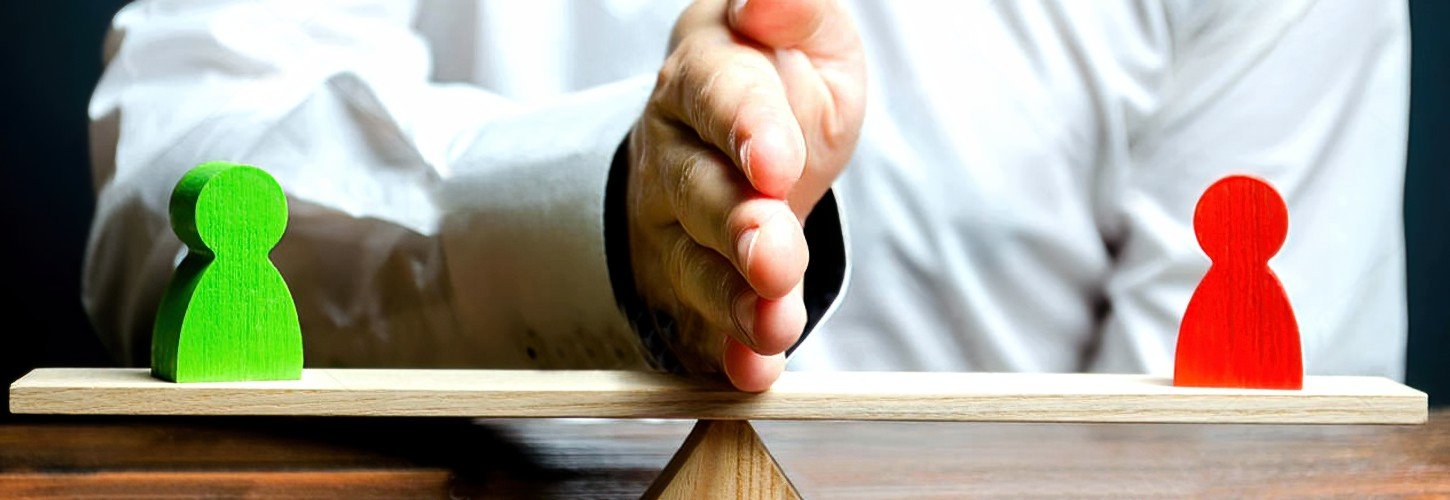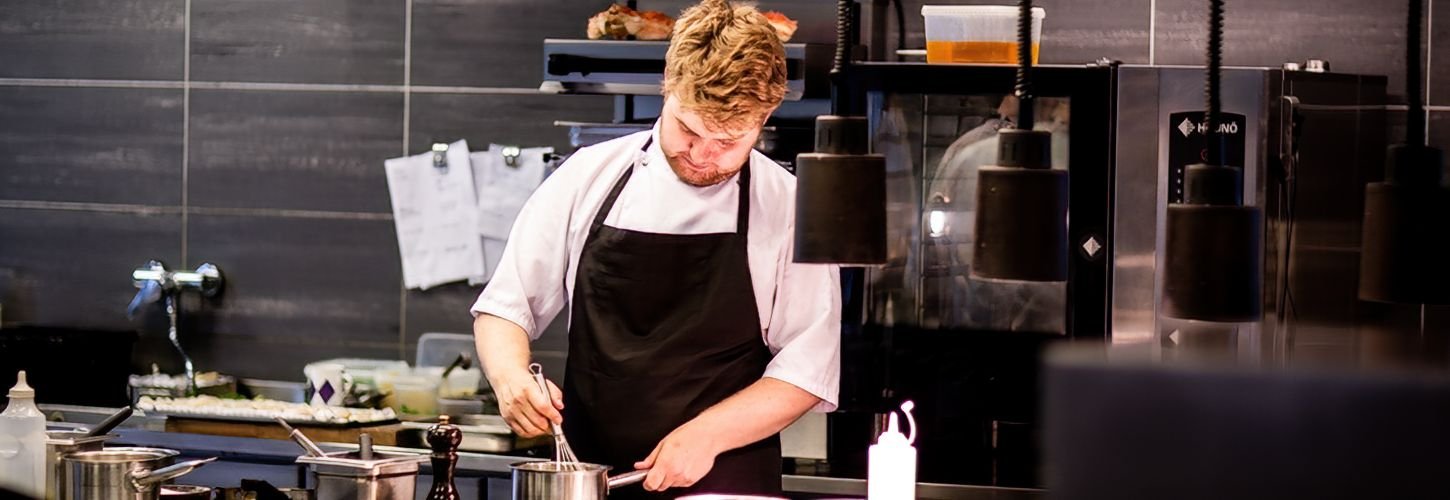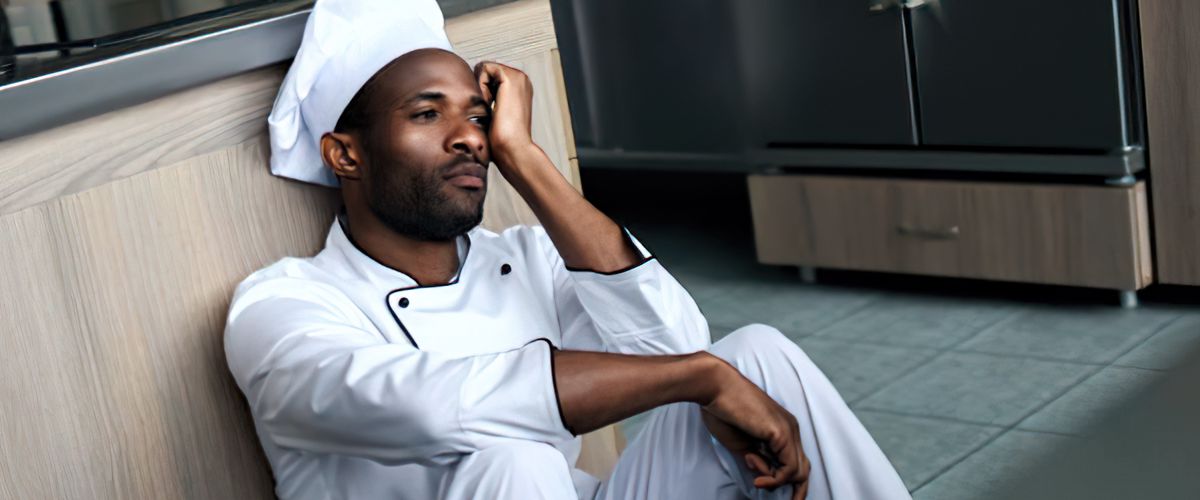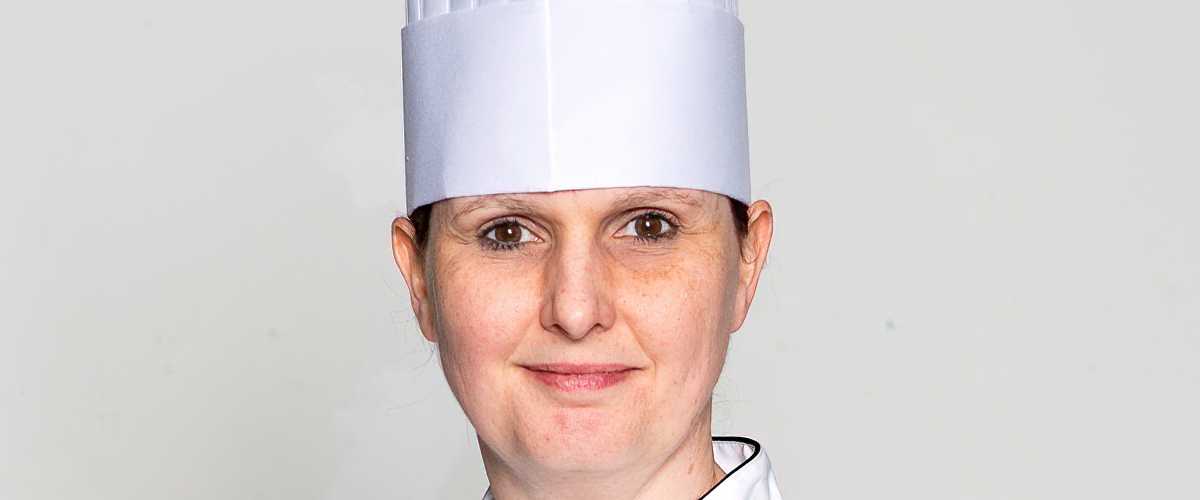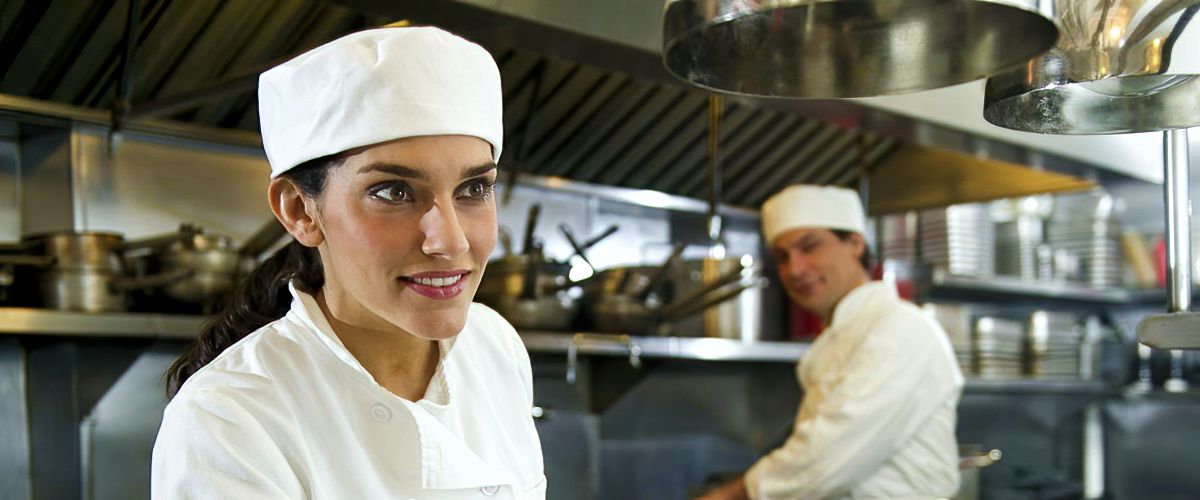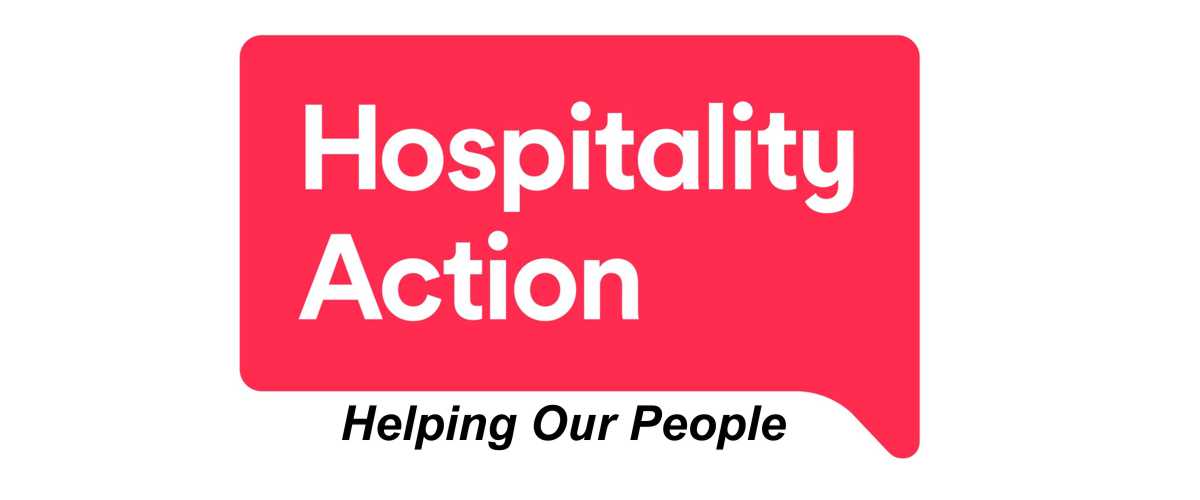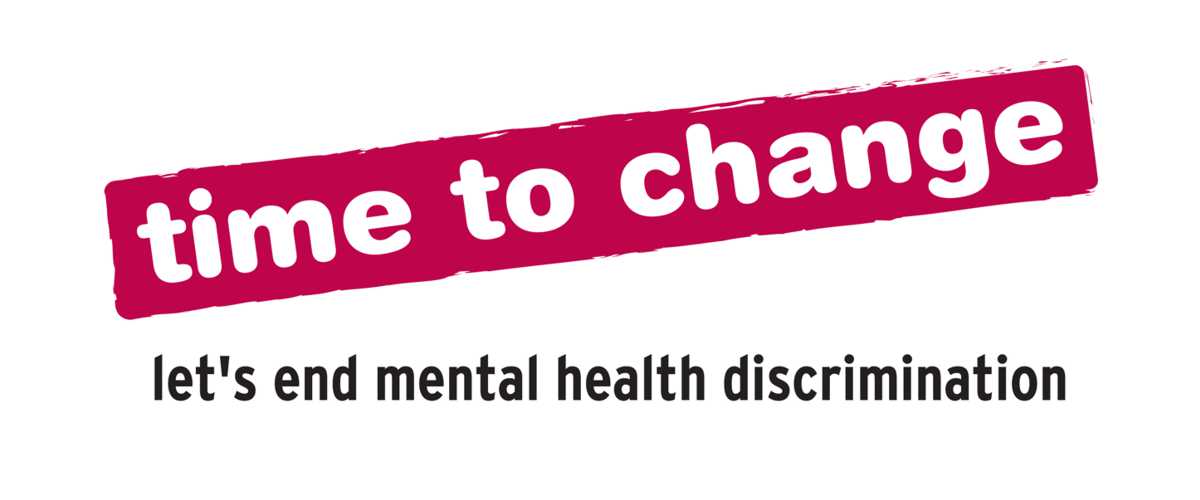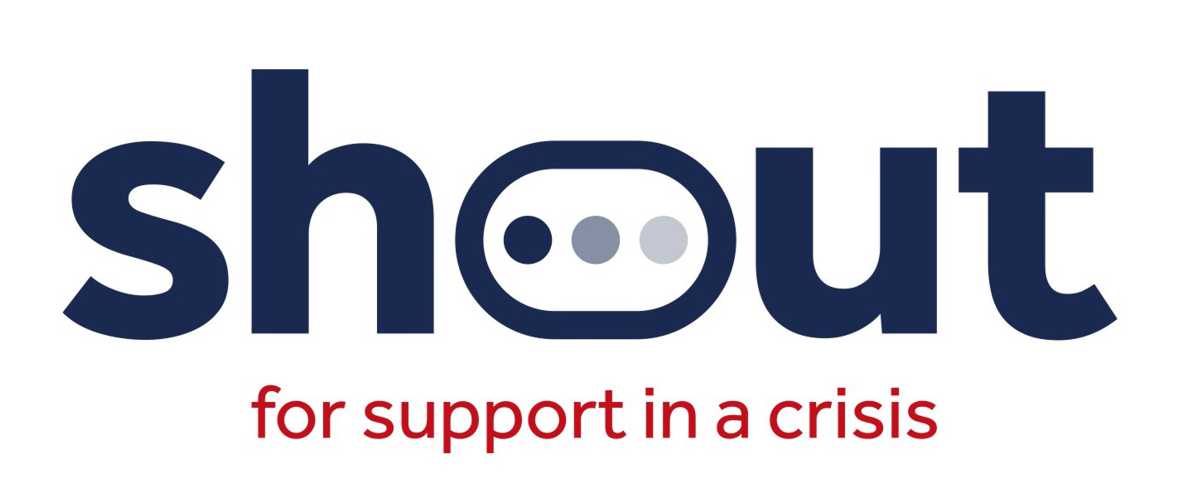
Brian
Administrators-
Posts
209 -
Joined
-
Last visited
-
Days Won
8
Content Type
Profiles
Articles
Heatstress
Not On The Menu
Store
Everything posted by Brian
-
Almost day one Unichef have seen the vision of diversity as the answer to the majority of the issues in modern catering, and now yet again we have been proven right. At last a major figure in the profession has had the courage to say what we have believed in for so long that the major issues of drugs and sexism will not go away whilst we still have male dominated kitchens. This outdated and largely unworkable method of kitchen planning often sees high turnover of staff and increasing problems of recruitment and low morale. Once again Jamie Oliver's insight into our industry is stunningly accurate, his bravery exemplary and his vision acute. He knows more than most and has the balls to say so. His admission that he works better when he thinks like a woman and has women around him is extraordinary and one that many chefs can Identify with but have not had the courage to say so.He sees the unique and special talents women bring to a kitchen and their simplistic and uncomplicated attitude to food that can enhance a working environment tenfold. 50/50 kitchens have to be our future, there can be no doubt now and applause and credit once again to truly inspirational Jamie Oliver. ‘It’s quite scary!’ Jamie Oliver says upscale restaurant kitchens are ‘flooded’ with drugs UK.NEWS.YAHOO.COM The celebrity chef spoke about the ‘aggressive’ and ‘male-driven’ kitchens he’d worked in previously
-
OMG...this is quite some case It's well worth reading... In essence, the case seemed fairly trivial, most of it could have been sorted at an earlier stage but it does go to show some of the very poor management decisions that we see all too often at Unichef. They didn't have the skill set, patience, or experience to sit down with this employee and thrash out the issues over a cuppa, Instead, it has been allowed to fester and now the result has been a Tribunal award of breathtaking amounts. The Employer" irrationally disregarded argument and evidence", surely then the next to be sacked should be the management team that oversaw this shoddy affair? Nursery chef unfairly dismissed after biscuit snub WWW.PERSONNELTODAY.COM Nursery chef dismissal: A worker was awarded £34,000 in compensation after issues with investigations and how his performance was handled.
-
At last...at long last,legislation finally getting through both houses on tipping of service staff and chefs.Now employees have the right to demand that the service charge and tips be given to them without ANY deductions. The Article quotes as saying that it doesn't happen"very much"..really?..then why legislate for it then ? The fact is it does happen and more often then people realise,especially when it comes to chefs or waiters leaving the business as some ( not all ) employers seem to think that they can "claw back" anything that may be owed to then though the service charge system? well now they cant and about time too !! Tipping legislation to become law after clearing House of Lords WWW.THECATERER.COM A bill that will prevent employers from making deductions from staff tips has cleared the House of Lords and will receive Royal Assent to become law.
-
The Dominic Raab Affair If your wondering what Ex minister Dominic Raab and Unichef have in common then read on? Since our conception in 2015 Unichef has constantly and consistently fought against bullying and harassment in UK kitchens. Last week when the Deputy Prime Minister resigned over bully allegations it signed a new chapter in workplace relations that will last for many years to come. Finally the issue of bullying now been clearly defined by a leading KC and that in itself has set a new precedent for what can now be defined as “Workplace Bullying” For years we have been warning chefs that this day would come, that there arrogance, shouting, bating, banter and sexist overtones amounted to dismissal and we have been proved right. That overbearing criticism, belittling of people and humiliation can all now be termed as “abuse of power” and that can lead to dismissal and even prosecution. Even as you read this we are involved in several serious cases where “abuse of power” by either a Head Chef or Sous Chef has been ignored and allowed to create an “atmosphere of fear” and intimidation. Even now in the 21st Century we have Chefs who believe that the can do and say whatever the like in “their” kitchen. Their time has come, their reckoning awaits and Unichef will punish all who abuse abuse and condone this vile and outdated behaviour in the workplace.
-
-
It's Ironic that the reason we are posting this late on International Women’s Day is because we have been tied up with a serious case of Harassment? The case involved a young single mum who has been receiving the most disgusting treatment within the kitchen of a well-known 3 Rosette establishment. The Hotel, like so many others had taken its eye off the ball and had ignored its legal duty of care to its employees in its search for accolades and stars. The kitchen had become toxic with male chefs using sexist and violent behaviour towards this young woman. So bad had it become she ended up on the sick with stress and she sought help from The National Chefs Union. We acted immediately and warned the employers of the seriousness of the matter and their legal duty of care that we expected them to uphold. To their credit the hotel "fessed up" and admitted the faults and immediately remedied the matter with an investigation which resulted in a dismissal and a supportive system of care for its staff. So now all is well, and she will return to work soon. This young woman was incredibly brave, stood up to the harassment and was determined to seek the support she was entitled to from her employers, and she also had the courage and strength to seek support and compassion from Unichef which was able to bring the matter to a swift and amicable conclusion. Even on International Women's Day the National Chefs Union is still fighting for equality for our female colleagues and still fighting against the bias in the industry. So, on this day let us take pride in the work we have achieved but also acknowledge that we still have so much to do.
-
In 2015 Unichef were the very first chef organisation to openly discuss Mental Health Issues (MHI) in our profession, before that so many suffered in silence. In order to create that safe space for discussion we needed to learn and embrace all that was being said to us. We knew as a Union that we could never fully understand what is like to suffer from such conditions but we also knew that we needed to care and support our fellow chefs. That culture of finding safe spaces become more and more an essential part of our work, and so too we learned about how to embrace more and more the various aspects of our chefs’ lives, from those that suffered with IBS, Strokes, Autism and Asthma. Over the years Unichef has reached out and embraced all aspects of the lives of working chefs. We never pretend to “understand” but we have learned to embrace, support and care, and we could not have done this without creating such safe spaces in which to openly discuss these important issues and having those chefs brave enough to come forward and help us to do that, without judgement or fear. Today we can now say that we are in such a position to bring forward that support and care for our LGBTQ+ community. Unichef is a Community Union and it must always reflect and support that community in all aspects of our working lives and the LGBTQ+ community within our profession needs that safe space too and once again Unichef is leading the way for others to follow. We know that there are many chefs who long for a more open attitude within catering and we must accept that our profession has failed so far in recognising and supporting LGBTQ+ chefs in their work. Today, with the wonderful help of Director Designate for Diversity and Inclusion Nicola Till we can now move forward and create that forum of support for gay Chefs in the UK.The British Culinary industry is far behind the rest of the world in its openness and embracement of LGBTQ+ issues and today we take a giant leap in doing just that. For the very first time that support system of care and compassion is there for the Chef LGBTQ+ community, we are there for you, ready and willing to listen and care. Once again Unichef,The National Chefs Union is breaking down walls, breaking down those barriers and stigmas that haunt our profession, today we reach out, today we are Proud,very Proud.
-
For those that wonder just what sort of future role Michelin and AA rosettes have post pandemic then this excellent article by Andy Lynes may begin to throw some light as to why many in the industry now believe as we do that the accreditations system in the UK is well outdated and is no longer fit for purpose (as if it ever was?) Pale male and stale Fixing hospitality awards' diversity problem WWW.THECATERER.COM Accolades in the hospitality sector are still stuck in the past with recognition still mainly going to white male chefs cooking European cuisine. Andy Lynes... Both of these accreditations have made chefs in the UK believe that somehow, they are a true reflection of the quality of cookery and that incredibly the public are culinary educated enough to understand the differences in the various levels. They have both been found guilty of taking the public for idiots and chefs for granted and now people are beginning to realise what we have been saying for many years. In this article, Andy has expertly opened up the growing debate as just how relevant these archaic institutions really are and the role, they have played in creating a sexist and elitist industry that has cared little for its employees and are both now struggling to survive and justify their existence. So too the many Chefs Associations that prosper the belief that only if you join their “club” will you ever achieve greatness in this profession. You too can have have a sash,a badge and say your some sort of culinary genius? That is of course if your white, male and don’t rock the boat, as many of these ( not all ) rely heavily on the white male dominance that Andy Lynes describes and that is at the root of much of our historical issues.Perpetrating white male dominance has proved to be the undoing of our industry.white males are leaving in droves,for better and safer industries yet these "guardians" of our profession still fail to see it. This well put together article clearly shows that it isn’t just Unichef that is questioning the system but now those within it are clearly saying that what we have had in the past has not resulted in giving us an industry that rewards chefs for their hard work, is well regulated and is forward thinking in employee welfare and that it is time to scrap both of these systems and start afresh. Finally people are realising that the price paid in achieving these indulgent accolades is no longer economically viable or even necessary in today's post pandemic catering industry and a better more inclusive and less elitist way of informing the public of the level of culinary talent needs to be evolved. In all honesty,if both the AA and Michelin Guides folded tomorrow,would it really matter ?
-
We take no pleasure that any good hardworking Restaurant needs to close and that chefs will be disbursed into other jobs and sectors, but this is surely the now the defunct model of chefs spending fortunes on the latest equipment, gadgets, plates in order to achieve the once converted Michelin Star. Casamia in Bristol has announced that It will close this year with its Chef Zac Hitchman quoted as saying "losing just a few covers per service is often the difference between making a profit and making a loss". The idea of any business is that you make a product that someone wants to buy in the numbers that will make you a sustainable business. When you are working on plates that cast more than the food, you’re serving then that business model needs to project in a modern buoyant economic environment. For many years now we have criticised the Michelin model, the often-unstoppable thirst for that accreditation that is seemingly given out more and more without a set of ethics that the customer and owners can adhere to. The massive cost financially and on those that work within that sector. Once again Michelin is tarnished, and sadly this will not be the last closure. The pandemic should have taught us more and we should now learn this stark message that this level of fine dining is only for those that exclusively dine in that type of restaurant on a regular basis and can easily afford it . It is not and never will be the food of the masses and the more Michelins we have on every street corner the worse the situation will become. We must ask ourselves is this the result of the economic crisis or simply that Michelin dining has become overpriced and devalued by the amount of television programmes and celebrity chefs pushing food that only a few can afford. In reality many need to double their already high prices in order to keep that star but few can do that and the choice between losing the start and fighting for survival is becoming a daily choice. Once Michelin was special, the height of culinary art and gastronomic achievement, now there’s simply too many, too much choice in a market that is diminishing rapidly. Once they were kings but now everyone can see that the Michelin bubble is bursting and only the VERY best will survive.
-
“Private Chef Giants La Belle Assiette to sponsor The National Chefs Union” Unichef, The National Chefs Union, are delighted to announce that Europe’s premiere Private Chef Hire and Home Dining experience La Belle Assiette have agreed to sponsor Unichef for 2022. This special and unique agreement will focus on the substantial wellbeing and rewards opportunity’s enjoyed by both LBA chefs and Unichef members. As Executive Director of Unichef explains: “for the first time a company has enlisted the services of a union to promote its in house benefits whilst at the same time allowing all of its chefs to Join a Union free of charge, it is totally visionary and inspiring” This is the very first time a company employing freelance chefs have ever enlisted the support of a National Union and LBA Chief Executive Guillaume Cussac explains just why this partnership is so special, he says this: "We are very pleased to support Unichef and all of the amazing work they do for the Chef industry. As the UK's leading private Chef company, Chef wellbeing is key and at the heart of what we do; supporting Unichef just made a lot of sense"
-
It's really hard to believe but bullying and harassment still goes on in our kitchens today,even with many headline storey's and constant press attention,its almost as if Chefs seemed to think they are on another planet? Well, that's actually more closer to the truth than you think? It is difficult to fully understand in a short time, but there are two thesis papers and a great article that will help you understand the demographics that help create the toxic environment currently seen in kitchens. The first is by Prof Wendy Bloisi: Academia.edu | Log In WWW.ACADEMIA.EDU Academia.edu is a place to share and follow research. This examines the cultural reasons why chefs can bully, that historic abuse breeds more abuse and that commercial kitchens can be an extension of the chefs homelife, or social life. That in essence they often bring their issues and social values to work. If they are brought up in a gang or street culture they often seek that same comfort in their workplace. In reality male dominated kitchens are very much an extension of the school playground where girls are excluded and the hierarchal system of inclusion takes place, the toughest survive and the weakest are bullied. Catering by and large is not an academic profession, Chefs are mostly kids off the street who will never amount to anything else through poor education and social deprivation, that includes both me and Gordon Ramsay, we are just kids off council estates who have a talent to cook. The second is more recent and is from Cardiff University. It examines the long held mystery of the “closed” culture within kitchens and just why chefs seen to believe they can do anything they want within their own domain. The often isolated chef/chefs are never really included in the general work scene of many establishments hence the phrases “ back of house” and “front of house” which again isolates chefs into their own community and own world. The thesis examines this “parallel universe” that chefs sink into, believing that what they say and do is completely acceptable in their world. Working in isolated environments enables culture of bullying among elite chefs, research finds - News - Cardiff University WWW.CARDIFF.AC.UK Separation from mainstream society paves way for verbal assaults and physical attacks An interesting article also by David Simpson ( 2008 ) looks at the “Gordon Ramsay Effect” and is really very much at the heart of what is happening today and I will talk more about this with you, but essentially what Ramsay did in glorifying abuse still affects those chefs who idolised him and were groomed into believing that kitchen had to be aggressive in order to function correctly. Featured paper: Bullying in the kitchen WWW.CABI.ORG Abusive work practices reviewed in new paper So, if you put all three together and then realise that our industry is largely un-unionised and poorly policed the you begin to understand just why this is still going on and why it is such a hot topic.
-
Without question, one of the major issues we face in modern British Cookery is the myth that has grown over recent years that all chefs must adhere to the now perceived look that has been portrayed by media, film and social media that British chefs should be male, white and (preferably) tattooed? We now have a "look" as to what people think a British chef should look like?? This way of thinking is now ingrained into British cookery and is a cancer that has spread to many of those companies and institutions that have a social responsibility to uphold standards for the future. But now those very guardians of the faith have become so indoctrinated by this perception that they portray this image as a flag or even some sort of masonic “badge of honour”,they do it without even realising the harm they do and this is the definition of Institutional Sexism. When a company, employer or culinary institution promotes a vision of a Male Only profession, either through their websites, leaflets, doctrine, media posts or even the very make up of their organisation, then those looking on can only presume that the belief of that organisation,kitchen or company is what it is portraying and that those organisations only ever want to promote male white chefs, as this is their true ( but often unconscious ) intent. When those responsible ( very often white men) are in charge of the content and spiritual guidance of those establishments and sanction such clear and decisive messages then that organisation, by definition, becomes inherently and institutionally sexist. Although at this point I must make it clear that often these actions are often by way of habit and not always conscious decision making. When that organisation, promotes without equality, without attention to gender recognition then that organisation is Institutionally sexist and when that organisation organises ,promotes and sets about programs where the dominant sex is male, the organisers are male, the judges and competitors are male and the eventual winner or recipient of the award is male then that organisation can and should be regarded as Institutionally sexist. When an institution or company fails to set internal targets for female and ethnic inclusion then that too is seen as Institutional, it is cultural within their system, and is therefore systemic. Institutional Sexism is disease within British cookery. It bears no allegiance to our heritage and bears no resemblance to society. A society that has by and large grown to promote equality and inclusion within every walk of life yet, so many kitchens, companies and Institutions within catering are oblivious to modern thinking.In many ways we are still in the 70's but don't realise it? Whilst those in charge of such organisations continue to believe that only white men can cook, and that white men must always be in charge of our culinary future then those men need to wake up and see what lies ahead. This profession cannot and must not be led by those with such archaic ideologies. Such ideologies effect the very make up of our profession and stifle creative talent. The time for change is coming quickly, we cannot simply go on ignoring the immense talent that we have in the UK just because they do not fit the stereotypical chef image. #allchefsallowed
-
Unichef endorses #Fairkitchens The National Chefs Union, Unichef has agreed to fully endorse the movement #Fair Kitchens and its new online Leadership Training. The movement co-foundered by Unilever in 2018, is an international movement aiming to make staff happiness as important as diner satisfaction and will acknowledge fair pay, fair hours and fair conditions within that establishment. The movement, which seeks to improve the wellbeing of hospitality and foodservice workers, now has more than 22,000 community members learning from each other and creating resilient businesses in the process. It has recently launched free online leadership training in interpersonal skills called ‘Leading a Fair Kitchen’. Unichef will be supporting the movement with regular updates, information and guiding chefs towards the Leadership Training. The long-term ambition is to create a point of preference, with ‘Fair Kitchens’ recognised by potential team members as good places to work and by diners as assurance of a quality dining experience that doesn’t compromise staff wellbeing. Executive Director Brian Mcelderry writes” Fair Kitchens will, for the first time, give a clear guideline to those employers who seek to give their workforce better pay, hours and conditions and will give customers a true indication of how staff are supported within each establishment, and hopefully this will become the future for all of our kitchens. Click either of the images below to visit the Fair Kitchens website.
-
The news that the government has set up a “task force” that has zero shop floor representation has been met with dismay and anger. The new Hospitality committee comprises of the Business Minister Paul Scully and Business Executives who all have a vested interest in seeing the industry return to prosperity. They have been seconded to ensure that the government’s 22 point plan for recovery is supported, implemented and encouraged within the industry. However the very point that they intend to do this without recourse to any Union or representative body is quite beyond belief and belies the very attitude that is ripping our industry apart. That those who oversee a “them and us” vision of our future should take a long hard look in the mirror as few of them can truly hold their hand up when they are asked if all of their workforce are secure in their employment, happy and feel safe and protected. Never could we have envisioned that the very cause of much the deep concerns in the industry are now in the very hands of those who have in recent years overseen much of the abuse of its workforce fueled by mass immigration and poor expansion planning. The National Chefs Union has now written to those MP’s that supported the call for our own Hospitality Minister earlier this year and have demanded an urgent review of the Council, its role and the lack of diverse representation. This appalling lack of sensitivity and respect shows contempt for the very people that they employ. This “let them eat cake” attitude has to stop and its has to stop at the very top if we are to achieve a better future for those that we seek to employ. That they do not seek engagement with the workforce through their representatives shows an unwillingness to accept the worker empowerment that is sweeping across our industry and a fear of those that seek change.
-
One of the biggest issues we have in modern catering is what to do when conflict occurs within the pressures of a busy kitchen. These issues are very often the result of either the internal “self-drive” of the chef or chefs involved and, or the external pressures of time, standards and fatigue, and very often all these combine to create that “perfect storm”, Sadly, these days many young and inexperienced managers who have not proceeded through the ranks of Hospitality do not know how to deflect these situations in order to carry on with the day’s work and inevitably end up losing a chef, either for that day or even permanently. Without doubt the answer lies within the hands of the unit manager or Head Chef to be experienced and strong to be able to control and motivate their employees. Recruitment and selection play such a big part also. Many Head chefs and managers concentrate on the practical side of an applicant but few seek to know the inner person they are interviewing. Few ask for their views on bullying and discrimination or their attitudes to women in kitchens, yet much of the future conflict can be avoided by more careful selection of candidates. If we focus more on the merits of the person and not solely on their cooking ability then we should be able to see the potential for conflict at that stage. Personal references and careful scrutiny of candidates at this stage avoid the potential for conflict. Kitchen conflicts are often about personalities, with experience and careful man management these occasions need be rare.As new Chefs are so often interviewed by the Head Chef or Manager, they are rarely introduced to the team or brigade for their reactions, yet the team itself should have a major say in who they bring into their workplace environment, should they not? This is a “people” business, yet our ability at times to understand and develop our senses about the people who we employ and work with can be quite shocking. When conflict occurs, we should question ourselves in asking could we, as Managers, chefs and colleagues have done more to avoid that incident, were we as much to blame?. The National Chefs Union works tirelessly with many employers to educate our colleagues that the great majority of conflicts are solvable and that they often move forward through development and motivational leadership. We must understand that nobody wishes these conflicts to occur and that there is normally a reason behind such incidents, we just need the will and experience to seek those reasons and prevent them from happening in the first place.
-
Recent events have shown to the media and outside world that a shocking environment exist inside of many UK kitchens. Yet within the industry none of this is of any surprise, such is the now systemic nature of workplace abuse within our sector. Everyone is puzzled as to how and why this would be in a modern working environment but to analyse the matter one must appreciate the demographics of the workforce and the cultural changes that had enabled these vile practices to exist and thrive. Professor Wendy Bloisi’s ground-breaking research into the background of bullying in commercial kitchens has acted as our Union’s bible for many years. In her thesis she explains that social and economic factors bear heavily on the mainly un- academic platform of hospitality employees and namely chefs in kitchens who are mostly kids off the street who have a talent to cook but little else. Chefs are by and large are often seen as unskilled and problematic. https://www.research.manchester.ac.uk/portal/files/54526643/FULL_TEXT.PDF Those factors are born out when Chefs then bring their cultural ideologies and traits into an un-policed workplace where they are “safe” to bully and intimidate within their own peer group, without fear of retaliation, discipline or indeed prosecution. If we then subscribe to the now widely held social belief that “abuse breeds abuse” whether it be in the home, marriage or school, then also that must apply to the workplace also, and some kitchens in particular, which can be no more than a “playground” for bully’s. All of this has been ingrained into our workplace over the last 10-15 years by the “glorification” of kitchen abuse by chefs such as Gordon Ramsey and programs such as Hell’s Kitchen and the F Word. Ramsey himself came from an abusive background and strict culinary teaching and so that has perpetuated into his work. Those who idolise him copy his actions and believe that to be correct, normal and even "cool" and so it goes on, from generation to generation. Chef Ramsey may well be a reformed character but the damage has been done and will last for many years to come. This “gladiatorial” display of bullying, played out in front of millions, is now the main factor in just why “bullying and harassment has become systemic within UK kitchens. Many factors play there part in people who abuse such as lack of confidence, and self-esteem bit also those who bully and intimidate may have autistic traits and are often acting out a defense mechanism which is their way of self-protection. Both Chefs, and the wider public have now accepted this as how kitchens are ran and is without doubt the disease that has crept up upon us and has led to the now “normalisation” of abuse and harassment that we see today. Change can only be affected by constant education of our peers, our employers, the media, and most importantly, our students coming into the industry. Abuse is a plague within our sector that has to be stamped out by all who work within it. We are all part of a precious and special profession, a profession that cares for our clients but fails to care for those that work within it. We can do better and we must do better. We must learn from the past mistakes of others and make a conscious decision that as “professionals” we are sometimes not as professional as we should be and look to other professions that show us a better example of how to treat our colleagues.
-
With our industry now ready (almost) to return to some sort of reasonable normality we are now seeing the pent-up frustration of both Employers and Employees and issues raising to the surface. The pressures on Employers are staggering that’s for sure. many have huge debts and they continue to rise and now they are face with a massive shortage of good chefs and are having to shift that pressure back onto the small workforce that they have just to survive the rest of the year and get back some of what they have lost. Needless to say, this is causing huge resentment to staff, who feel that they are being made to pay for what has happened over the last year or so but are they right to feel that way? Do Employers also have a right to feel that they now should expect employees to shoulder the heavy burdens they have an “take one for the team “, soak up the pressure, work extra shifts and extra days, all for the good of the business and for the security of their job? It's certainly a moral dilemma that none of us have ever faced before. Is it right to “guilt trip” employees, is it right to add even more pressure than they already have or is it the Employers sole responsibility to shoulder all the issues and run their business effectively from day one? Do employees have a moral obligation to support their employers by providing free labour? At Unichef, we HAVE to see both sides of the coin. We have members who are owed thousands of pounds from employers who have no money. We have even heard of Employers keeping tips so that they can pay bills, and chefs having to clean toilets because they have no cleaner and many other sad and shocking stories. Things are not back to normal and will not be for along time. Industry experts predict this to last in Hospitality indefinitely as few realise that we have also lost a million oversees workers, many of whom were working in our sector. Remember nothing like this has ever happened before and we are watching carefully as they situation develops and hoping that some relief is in sight for both sides but we are not optimistic. We warned in March 2020 that this would happen, it was sadly all inevitable and possible much worse to come as chefs now feel even more that this is “not the job for them”. Many have returned excited, but so many more have returned frightened and disillusioned and are already looking to get out. An industry cannot simply lose that volume of workforce and not be severely affected and If, as many believe, they trade was bad before the crisis, then it’s even worse now that’s for sure, it’s in a mess and will be for a long, long time
-
Recently, I had a notification from Linkedin telling me that’s someone wished to be included in my professional network, nothing new it happens every day. As you process that notification a panel appears that allows you to connect with likeminded professional’s and as being a chef, the algorithm’s set by Linkedin give me a huge selection, hundreds if not thousands of other chefs, and so you begin to connect with those you wish in your network. I tend to pick professionals who are clearly in the UK,and who I can then share and spread the word about our amazing Union.After picking about 20-30 I suddenly realised the huge lack of Women chefs and and chefs of colour, especially in any form of seniority? Sure there were a couple but most of the women were in other forms of the sector, Admin, Management HR etc and almost none Black or Asian female chefs? This really shocked me. Is the algorithm set to my past acceptance or is it geared up to my profile of being a male white chef? both of course would be wrong. Or could it be that Women and Black/Asian chefs don’t use Linkedin or even the reality that those demographic groups are simply not being represented on Social media because of the lack of those groups actually not being in our industry in sufficient numbers. This is certainly something we really ought to be considered more if indeed our industry is to recover from the pandemic and our employers seek to re-establish their business’s. Shockingly, almost all of the UK’s Contract Caterers are white male driven. Most of their group Executive Chefs, Development Chefs, Area Executive Chefs and Head Chefs are nearly exclusively white males? So too the numerous Chefs Associations and Craft oriented bodies that supposedly serve as ambassadors and leaders of our profession, promoting our culinary arts, again, mostly male, white dominated, and what about our college Lecturers, the teachers of our new young chefs, again the argument applies.Even in recruitment and on television the White Male Chef reigns supreme. Is the lack of diversity the reason why we still have so many problems in our industry? Is the fact that it is still white male driven the very reason that recruitment was at an all-time low before January 2020. Almost every employer of every description was finding it increasingly difficult to find the right chefs. Temporary Recruitment constantly relied upon and the situation was becoming so acute that it even began to affect the higher levels of our profession, including Michelin starred establishments.Whilst the” White Male Club” still exists in professional cookery, how can we ever hope to move forward? So, as we hopefully progress towards the re-opening of our business’s isn’t it time to reflect upon just how diverse we should all be in our approach to recruitment and begin to embrace the fact that diversity can and does bring a whole new set of dynamics to our profession and our business, and that the next time we do recruit then we begin to find those women, and chefs of all ethnic backgrounds that can bring that extra “special ingredient” to our brigades.
-
On the eve of an historical meeting between representatives of the industry and Government officials, it is good for everyone to know just exactly why we need our own Hospitality Minister and just why we seek to get closer access to the corridors of power. Much has been said but we think it is time to set out just what we aim to achieve when we do get our own Ministerial Official. Ministers work between Government and the elected bodies and representatives of an industry. They consult and formulate and implement plans and legislation on behalf of that industry, liaise with and consult with that industry for the betterment of all involved, to create a better and more functional industry. They can and do act independently but they also work together with the industry on new plans and the implementation of agreed plans and legislation. They can also advise and help draw up papers to put before government that might need new legislative approval. The advantages are that government get an insight into the industry and that the industry concerned can get first-hand information and advice on any new or proposed plans moving forward. The National Chefs Union already has an extensive list of items to put before our new Minister which include. *The creation of a timetable to oversee the implementation of the Good Work Plan and the approval of budgets to create the policing structure for that legislation as detailed by the Director for Labour Enforcement. * Discussions on the possible amendments to The Health and Safety at Work Act to create a Maximum Level of Heat and to set in law the requirement for free-flowing fresh air within all UK commercial kitchens. * Discussions on the possible amendments to the Human Medicines Act to allow UK Commercial kitchens to store Emergency Asthma Kits (similar to schools) * Discussing on the revision of Food Premises Licensing to include provisions for the above amendments and employee wellbeing. Our list is not exhaustive, there is indeed much we wish to discuss with our new Minister and we fully intend to have our “seat at the table” and make sure the Chefs of the UK are not ignored. Employment abuse is systemic in UK kitchens and we need to hit the ground running and address the many issues that have been building up for so long, including the age-old practice of Chefs and their kitchens coming last on the priorities of new business who think they can make a fortune on the backs of their chefs without consideration and due attention to the law and their representatives. In the future no Pub, Hotel, Restaurant, or food premises should ever be allowed to open until the requirements and provisions of Laws attaining to the safety and wellbeing of employees are met first. The future of catering is here and with us right now and for long we have been last in the queue…now we will be first. Make no mistake, we fully intend to have our voices heard.
-
Scottish and International Masterchef Shona Sutherland talks about sexism in our industry and just how important it can be that male chefs nurture and support talent of both sexes. Firstly, I want to stress that while dominance, bullying, harassment, sexism, intimidation and abuse I know is not confined to being directed only at women by men and can affect and be instigated by all demographic groups, since I am a chef and a female, I speak from this perspective. We can’t deny that it is an issue that still blights workplace mental and physical health, motivation, performance, passion, empowerment, happiness, and satisfaction. Secondly, I am keen to make aware that having been in the industry for my working life, that I am thankful to have worked with and been taught by many inspirational, respectful, humble, equality fighting and talented chefs who are male. We’d be in denial if we didn’t confront the fact that women in some cases are still victims of misogyny. While recognition and progress has been made over the years, there is still an engrained egotism, arrogance, domination, narcissism apparent and it is projects like these that lead the way in raising awareness. Education and leading by example are key. In an ideal world we can think of ourselves all as ‘chefs’ without a mention of gender, for me that is how I would have identified, but over time I have come to realise that it must be of huge disservice to women in the industry who have suffered atrocities at the hands of male colleagues. If we don’t differentiate in gender (in certain circumstances of discussion), then I’m not sure how the issues mentioned above that exist can be confronted or transformed in the future. I have had the joy of working in professional kitchens where, alongside men, women were an integral part of the operation, bringing their creativity, humour, understanding, strength, passion, leadership, and determination with them. How beneficial would it be to be to empower these qualities in the workplace, or is this exactly what a superiority mentality would try to suppress? I’d like to thank all those supportive, dynamic, creative, inspirational, and talented women I’ve encountered on my chef journey in all areas of the catering industry Thanks, Unichef for inviting me and other chefs to take part in the ‘Not on the Menu’ project. You can discover more about Shona and the fabulous work she does at Taystful, her chocolate emporium in Perthshire. Chocolaterie, Patisserie, Wedding Cakes, Masterclasses, Workshops. Perthshire Scotland. WWW.TAYSTFUL.CO.UK Taystful creates luxury handmade chocolates, stunning cakes and patisserie, and holds masterclasses, courses and workshops at Taystful and venues further afield. Shona has also created a survey so that female chefs can have thier say on sexism in the industry Women in Catering Survey - Sexism, Equality, Male Dominance WWW.SURVEYMONKEY.CO.UK Web survey powered by SurveyMonkey.com. Create your own online survey now with SurveyMonkey's expert certified FREE templates.
-
Some reading this will be wondering just why we need to push this subject so hard, after all aren’t there supposed to be equality laws in place? That’s true, there are, however much of that legislation is still governed and policed by men, and mostly men who have been brought up in a sexist environment which often effects their passive view attitude to women in kitchens. I too, was brought up in this macho, male dominated atmosphere, although I was grateful that my main teachers in cookery were all women and I benefited from their wisdom and care. Those early years working with women taught me so much about the respect and value that I needed to show as I progressed in my career. You would think that in the 21st century, the very last thing we should have to worry about is the safety and comfort of our female colleagues in UK kitchens, however the truth is that sexism and inequality is still a big issue in today's kitchens, and we need to continue the fight against it. So many chefs have commented upon the lack of young chefs and the quality of their training, yet as an industry we still fail to realise just how unattractive the job is to many youngsters and especially to young women who still see the industry dominated by loudmouth macho chefs and they wonder” is this really the job for me?” Unichef have known for many years that teaching “old dog's new tricks” is a long and arduous process, and therefore we know that if we are to eradicate sexism from the profession, we must educate our younger chefs from day one. We also know that, in the short term, Litigation or even the threat of Litigation can be a powerful tool against the sexists. Fines are increasing and many employees are now aware of the seriousness of sexism and the damage it can do to their business. The industry seriously needs to get its own house in order if we are to adequately provide a workforce fit for the21st Century. In 2021 we should not even be discussing this subject, but we are so far behind many professions that except women as equals and as colleagues and not sex objects. We have taken our slogan # Not on the Menu from the USA yet again other countries have taken the initiative against sexism and #Not on the Menu is a hugely successful campaign which has succeeded in catapulting some of the USA’s top female chefs into prominence. We need to take a strong lesson from their book and begin to look in the mirror and say to ourselves, “we must do better” and end sexism in British kitchens.
-
Hospitality Action was established in 1837 and has since offered vital assistance to all who work, or have worked within hospitality in the UK and are the largest UK Hospitality Charity. They are there for the chefs, waiters, housekeepers and managers. They are there for the concierges, receptionists and kitchen porters. And they are there for every sommelier, bartender, catering assistant and cook across the UK. Whether you work in hotels, restaurants, pubs, bars or cafes, schools, hospitals or event venues, They are there to give you the help, advice and support you need whenever times get tough. Click Here To Visit Website
-
Time to Change is a growing social movement working to change the way we all think and act about mental health problems. We've already reached millions of people and begun to improve attitudes and behaviour. In 2018 Unichef took the Pledge to support TTC and became the first Union in the UK to actively support Mental Health in the work place. Read all about the way TTC is changing the way we all thing about MHI Click Here To Visit Website
-
Shout is a 24/7 UK crisis text service available for times when people feel they need immediate support. By texting ‘SHOUT’ to ‘85258’ a Texter will be put in touch with a trained Crisis Volunteer (CV) who will chat to them using trained techniques via text. The service is designed to help individuals to think more clearly and to take their next steps to feeling better. Shout was publicly launched in May 2019, after a year long pilot phase. It is based on the successful US model Crisis Text Line. Shout is part of Mental Health innovations (MHI), which was founded in November 2017. MHI was set up following the success of The Royal Foundation’s ‘Heads Together’ campaign, which identified how utilising digital platforms and tools has huge potential to offer support services to individuals struggling with their mental health. Click Here To Visit Website
-
MIND are the foremost Mental Health Charity in Britain.They provide free support and care for thousands of people experiencing all forms of Mental Health. They campaign to improve services,raise awareness and promote understanding.For more than 70 years MIND have been committed to making sure that everyone experiencing MHI has the support and care they need. Now Mind has teamed up with National Chefs Union in supporting chefs across the UK.You can find out all about MIND and the fantastic work the do... Click Here To Visit Website


.png.f6c8796869d529de96d788477f6b080d.png)
.png.06752eeede5a82e8f538214e9811d824.png)
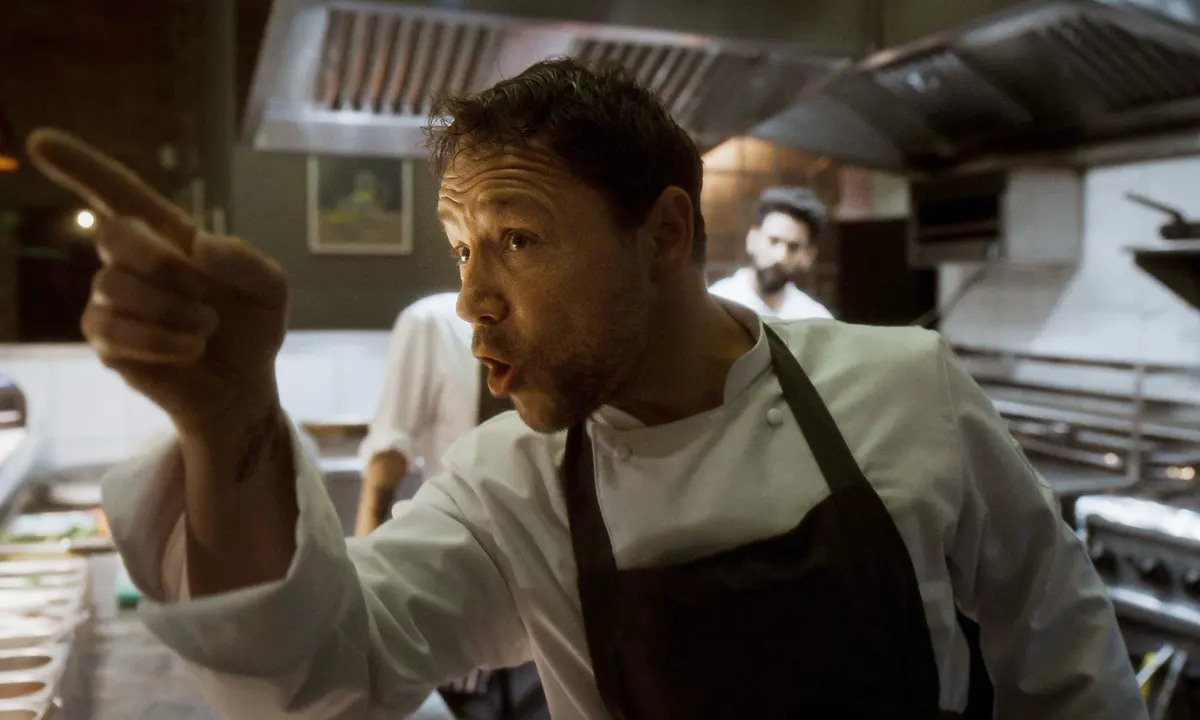
.jpg.66a9ca18924ed36183bfce8dfb8e8fb5.jpg)


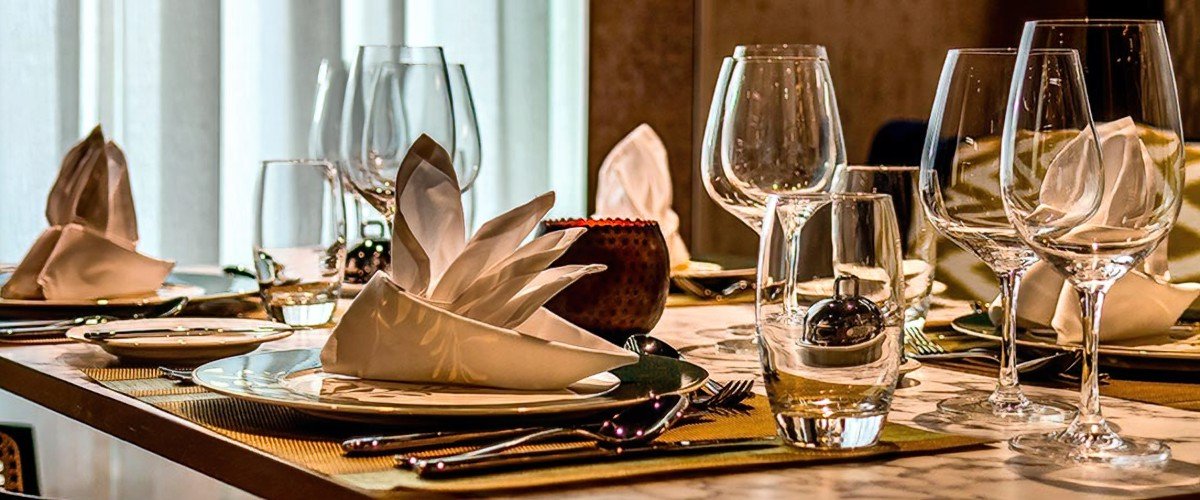
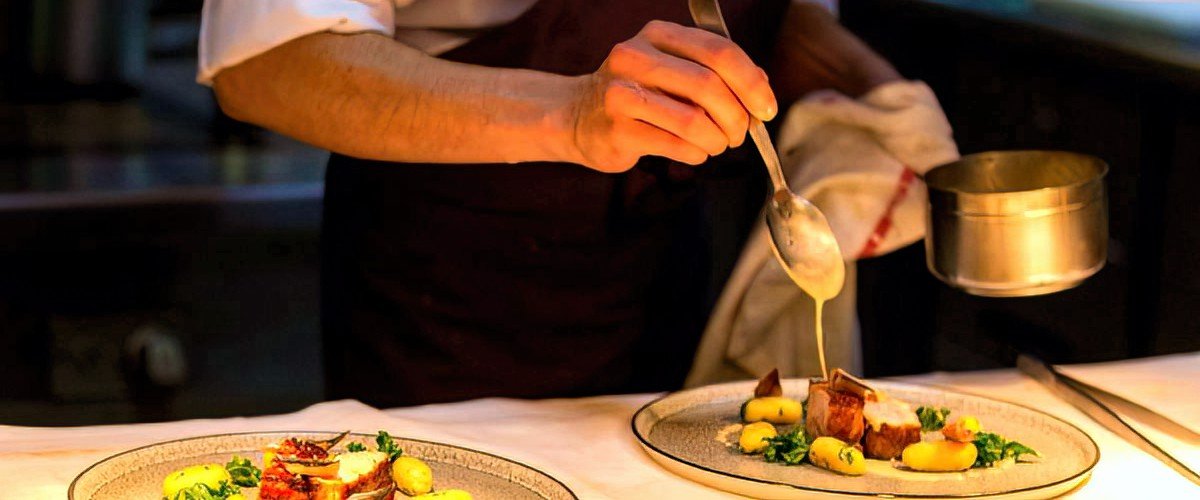


.jpg.a6ddba48b2d098721db9d7bdc006db7c.jpg)


